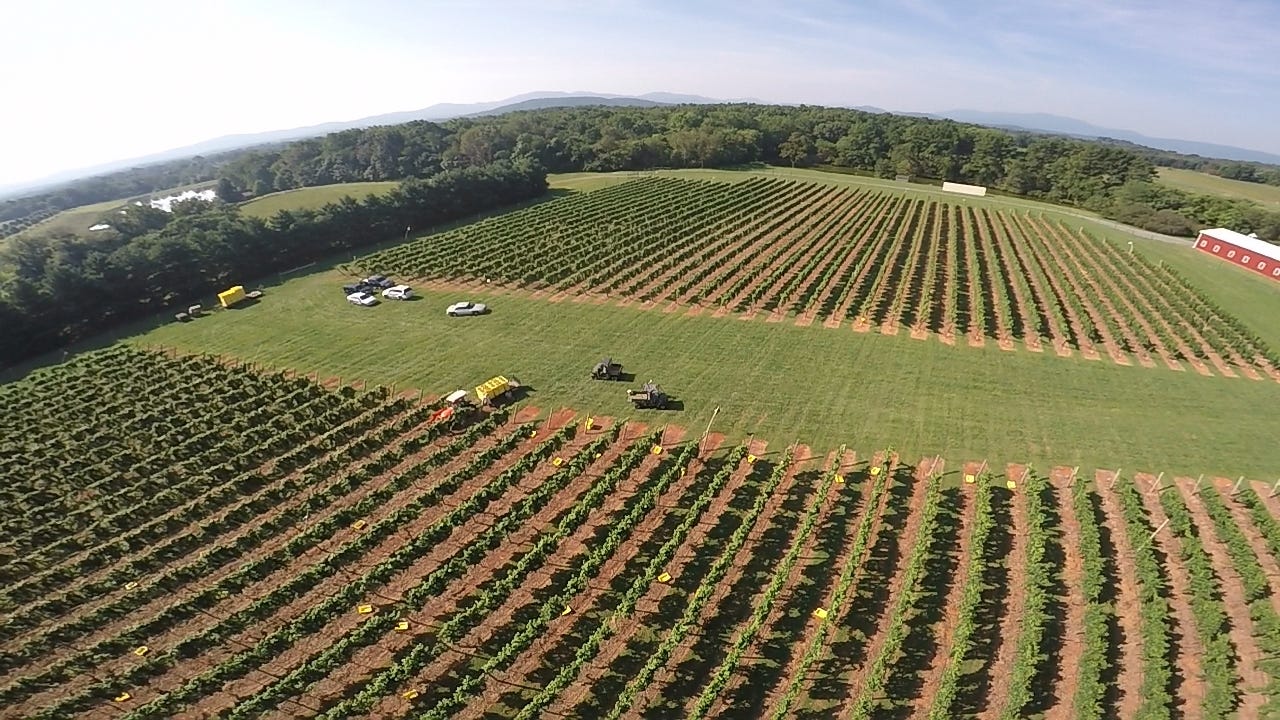Why Project VineIQ?
To measure is to know...
There is a myth that Lord Kelvin said, "To measure is to know. If you cannot measure it, you cannot improve it." Although these are not his exact words, in principle, this was his mantra1 and the inspiration for Project Vine IQ.
Soon, dormant buds in my vineyard will emerge and produce shoots, marking the beginning of a new growing season in Central Virginia. This year, I will be ready to measure and collect basic telemetry from my vineyard (something I've wanted to do for years). I’m excited to get to know my vineyard and hope to contribute to viticulture practices in Virginia.
Growing grapes in Virginia…
Growing grapes in Virginia is challenging2. Even Thomas Jefferson struggled to grow European grapes successfully in Central Virginia. However, with the modern advances in science, technologies, and analytics, viticulture managers are able to overcome many of the challenges by making data-driven decisions, provided they measure and collect relevant data from their vineyard.
Why collect data?
Collecting data facilitates data science, which ultimately enables the extraction of meaningful insights. Although our entire economy is data-driven, the viticulture industry needs to catch up in adopting modern remote sensing and data collection practices. One reason for this is that the existing technology is expensive. Another is that it needs to be simpler to deploy and manage. Finally, many farmers must see the value of capturing and analyzing the data before using it. In their minds, "why fix what isn't broken?"
What can we do with the data?
Data-driven analytics can give farmers insights and enable them to optimize frost mitigation, nutrient input, fungicide application, pesticide management, and much more. Furthermore, data-driven visualization of charts, graphs, maps, enable intuitive understanding of trends and outliers in a vineyard. And, lastly, data-driven machine learning algorithms detect hidden patterns, regularities, and anomalies that are not easily perceived by farmers at first-glance. Good analytics requires lots of historical data to provide useful insights. Although it takes additional time and effort to collect, data enables valuable insights not only at a local level, but regionally and globally.
How do we collect the data?
The goal is to collect data with technology that is easy to use and cost-effective. Ultimately, the farmer needs to see the value in collecting data. A great approach is to use commodity off-the-shelf hardware with accessible application programming interfaces (API) and community-driven open-source software. First, hardware vendors benefit from the wide adoption of their products. Secondly, the development of open-source software applications efforts typically operate at a faster velocity and incorporate useful features. Nothing kills an open-source project like useless features. Thirdly, a community-driven effort benefits from the contributions of domain experts: researchers, developers, technologist, and, most importantly, farmers.
Why should I subscribe?
First, this project is an open-source project. In this publication, I will share details about the project. Plus, I plan to publish the hardware specs, code, and documentation on GitHub along the way that you may use and provide feedback. Secondly, this project is community-driven. If you have domain expertise, as a farmer, scientist, or developer, and would like to make a contribution, the first step is to subscribe. Then send me a message and let me know how you would like to contribute.
What are the benefits?
As a subscriber, you will help promote the project.
As a free subscriber, you will receive regular updates describing the progress of the project.
As a paid subscriber, you will get access to the implementation details and will be able to participate in threads, chats, and post feedback.
As a sponsoring subscriber, in addition to the benefits of a paid subscriber, I will publish your organization’s logo and will include access to VineIQ’s software-as-service (later this year). For this, you are responsible for purchasing and setting up the hardware — with support from me via email. Then, VineIQ will do the rest… collect, analyze, and visualize your data on a private instance in the cloud, managed by Fidelis Farm & Technologies. This subscription offer will be limited to the first five (5) sponsors.
https://www.oxfordreference.com/display/10.1093/acref/9780191826719.001.0001/q-oro-ed4-00006236
https://www.virginia.org/blog/post/american-wine-birthplace/





Great post...I love that mantra, "To measure is to know." Looking forward to reading more!